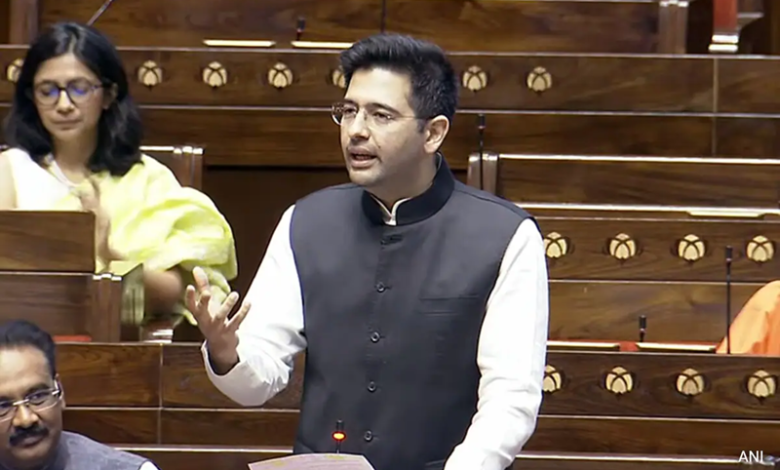AAP MP Raghav Chadha Calls for Reducing Election Contest Age to 21

News Mania Desk/Agnibeena Ghosh/1st August 2024
Aam Aadmi Party (AAP) MP Raghav Chadha has called for a significant change in India’s election laws, urging a reduction in the minimum age for contesting elections from 25 to 21 years. Speaking in the Rajya Sabha on Thursday, Chadha highlighted the demographic composition of India, stating, “India is one of the youngest countries in the world. 65% of our population is less than 35 years old and 50% of the population is less than 25 years old.”
Chadha underscored the disparity between the age of the population and its political representatives. “When the first Lok Sabha was elected after Independence, 26% of members were less than 40 years old,” he said. “When our 17th Lok Sabha was elected 2 months ago, only 12% of members were less than 40 years old. We are a young country with old politicians; we must aspire to become a young country with young politicians.”
He suggested that lowering the minimum age for election candidacy could help bridge this gap. “I have a suggestion for the Govt of India,” Chadha proposed, “that the minimum age for contesting elections should be reduced from 25 years to 21 years.” He also took to X (formerly known as Twitter) to share his appeal, writing, “Today in Parliament I demanded that the minimum age for contesting elections in India be reduced from 25 years to 21 years. Please listen to my heartfelt appeal.”
This proposal is not entirely new. In August of the previous year, a Parliamentary Standing Committee recommended lowering the minimum age for contesting Lok Sabha and Assembly elections to 18, aligning it with the voting age in India. However, this recommendation was met with resistance from the Election Commission of India, which argued that it was “unrealistic” to expect 18-year-olds to possess the necessary “experience and maturity” for roles in Parliament and State legislatures.
Currently, the minimum age for contesting Lok Sabha and Assembly elections stands at 25, while it is 30 for the Rajya Sabha and State Legislative Councils. Chadha’s proposal to reduce the age to 21 aims to make the political landscape more representative of the country’s youthful population. By including younger candidates, he believes that the concerns and perspectives of India’s young citizens would be better represented in the legislative process.
The debate over the appropriate age for political candidacy touches on broader issues of youth engagement and representation in politics. Advocates for lowering the age argue that young people bring fresh perspectives and energy to the political arena, which is crucial for addressing contemporary challenges. Critics, on the other hand, emphasize the need for experience and maturity in handling the complexities of legislative responsibilities.
Chadha’s call for lowering the election contest age is a part of a larger conversation about political reform in India. As the country continues to evolve, discussions like these highlight the importance of adapting its political framework to better reflect the demographics and aspirations of its people. Whether or not this proposal will gain traction remains to be seen, but it undeniably brings attention to the need for greater youth participation in Indian politics.
In conclusion, Raghav Chadha’s appeal to lower the minimum age for contesting elections from 25 to 21 years aims to align India’s political representation with its youthful demographic. As the debate continues, it raises important questions about the role of young people in shaping the future of the nation and the necessary reforms to ensure their voices are heard in the legislative process.






